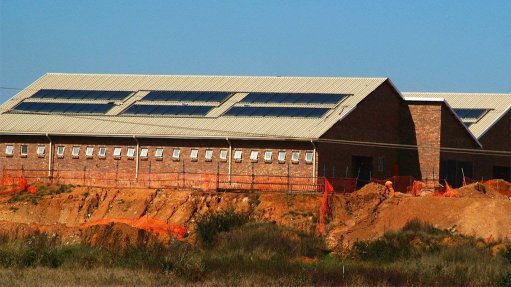
The National Building Regulations Act amendments, implemented in January, should drive an increase in the use of large-scale solar water heating in commercial buildings and retrofitting to existing buildings that use large amounts of hot water, says solar water heater importer and distributor Selected Energy MD Jim Hickey.
The new regulations stipulate that buildings complying with the Green Building Council of South Africa’s green building codes must generate 50% of their hot water using renewable energy, either through solar water heating or heat pump technology.
Delays to new electricity generation plants are heightening the risk of power demand exceeding supply. The price of electricity is increasing and excessive demand may then be combated by higher electricity prices or blackouts, he says.
These factors increase the risk to companies, especially in the hospitality industry, but companies can deploy large-scale solar water heating systems to ensure that they have hot water for commercial purposes.
Sales of the company’s Solahart solar water heaters increased 1 000% during the 2008 rolling blackouts, Hickey emphasises.
However, the quality of solar water heaters or heat pumps is not stipulated in the green building codes, he notes.
“The Solahart system has a life-time guaran-tee and never needs a top-up of the glycol fluid that is heated by the sun, which then heats the water in the tank. “The system is so robust that a person can walk on the solar collector. This also makes it highly resistant to hail, which often damages other solar water heating systems. The return on investment period for the solar water heating systems is two-and-a-half years and we have been present in South Africa for 31 years,” he says.
Selected Energy has installed Solahart solar water heating solutions in several large corporate office blocks and hotels in South Africa, he adds.
“We have installed our systems on 900 staff houses of an international mining company in South Africa. “Their main demand was for longevity of the systems, as most competitors can generally provide only a five-year guarantee on their systems.”
The Solahart systems have also been used on two diamond mines, in Lesotho and Botswana, for 25 years.
“We have installed 6 000 of our systems on these two mines and they are deployed regu-larly when hot water geysers burst.”
The company has also installed its systems throughout Southern Africa, especially for game parks and accommodation in wildlife reserves.
“The longevity and robustness of Solahart systems makes them well suited to Southern African conditions, from urban to wilderness areas, and our long record in South Africa and Southern Africa is an indication of the system’s reliability.
“We expect that our sales will grow as com-panies and holiday resorts increasingly aim to reduce their impact on the environment and their reliance on stressed electricity grids to heat water.”
Solahart is an Australian company that is in its sixtieth year of operation.